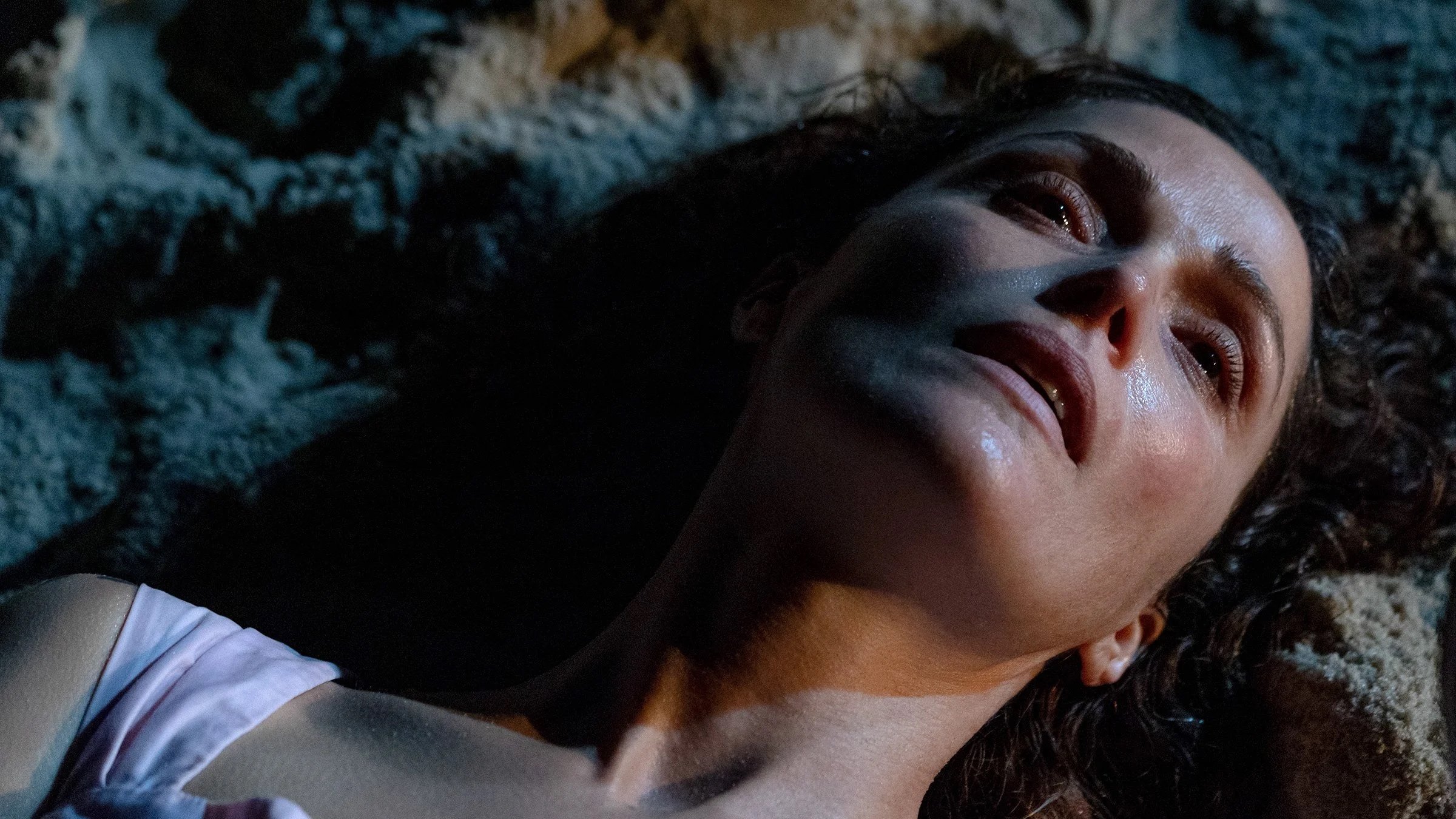If I Had Legs I’d Kick You: The Burden of Motherhood
by Emma Batterman
Mary Bronstein’s newest feature If I Had Legs I’d Kick You exists in the invasive close-up. Screened at the 61st Chicago International Film Festival, the film opens on Linda (played magnificently by Rose Byrne) as she stares wide-eyed towards an anonymous voice out of frame. The camera locks on her face as she listens in disbelief to the voice’s accusation that, sometimes, she cries in front of her daughter. In tears, she rejects the notion entirely. Every wrinkle and fold in her skin is uncomfortably visible as she scrunches her brows in indignation. Her sodden, bloodshot eyes feel like a precarious breach of her personal space. As she attempts to bury her emotions, we are introduced to the deafening screeches of Linda's daughter (Delainey Quinn) begging her mother not to cry with a scream that reverberates throughout the room. Bronstein dumps the audience unceremoniously into Linda's fractured existence. Without any prior information to explain her tears, we observe Linda’s frenetic demeanor as her daughter’s howls assault our ears in an opening scene that is nothing short of a chest-tightening display of unadulterated anxiety.
Following her tearful moment of shame, Linda’s misery only escalates as the duo are forced to live out of a motel after the ceiling of their home spontaneously caves in. While it’s clear Linda cares for the ailing child, she has no trouble walking away from their seedy motel room for her nightly moments of respite. Exhausted, she often drunkenly wanders the midnight streets outside her new grubby accommodations while listening to the static sounds of her sleeping daughter’s tube feeding machine through a baby monitor. “Are you going to leave me?” her daughter asks repeatedly, blissfully unaware of her mother’s sleepless routine. What would normally seem like a baseless inquiry into typical Hollywood depictions of motherhood instead carries the weight of plausibility. While ranting to her fellow therapist and coworker (played bluntly by Conan O’Brien) in her daily session down the hall from her own practice, Linda hysterically divulges all her woes, most of which feature the burden of caring for her daughter. “Maybe I got rid of the wrong one,” she laments in reference to an abortion she had in her 20s. In a damning subversion of society’s maternal expectations, Linda’s psyche unravels in an agonizing crescendo towards inevitable collapse under the unfathomable weight of parenting a child she simply doesn’t like.
This disconnect from the proverbial maternal instinct in Linda’s relationship with her frail daughter is measured in omission. Suffering from an unknown psychological illness that prevents her from eating, the child is cared for solely by Linda in the absence of her working father. Her feeble daughter is never mentioned by name nor is her face even shown until the final scene. Our own judgements of her daughter are channeled solely through Linda, whose experience of loving and providing is slowly choking her. Throughout the story, all we hear is the girl’s explosive anxiety and grating sobs accompanied by Byrne’s face contorted in a ticking time-bomb of pent up tension. Bronstein deliberately obscures the formation of any possible sympathy for the sick child independent of Linda’s subjectivity.
Bronstein isn’t the first to craft a narrative about the burden of women’s parental expectations. Kate Chopin’s 1899 novel The Awakening and, more recently, Maggie Gyllenhaal’s The Lost Daughter (2021) come to mind as tragic tales centered on a woman faced with similarly oppressive expectations of marriage and motherhood. What differentiates If I Had Legs I’d Kick You from previous iterations is the clear revulsion towards the ultimate standard of womanhood that it crams down your throat at any given moment. There is no gentleness in Linda’s shattered existence. The writer-director instead presents a hellscape of earsplitting screams and snot-filled tears from the inescapable perspective of a person grabbing you by your neck.
Rose Byrne, whose face fills the screen for most of the film’s runtime, only builds on this tension with a career-defining performance. This film is reliant on an actor who is nothing less than totally convincing in their depiction of the frustrating paradox of motherhood. Byrne delivers magnificently with uncomfortably biting depictions of grief and rage, the extreme close-ups leaving nothing to imagination as the camera exposes every facial twitch. With Byrne’s portrayal, Bronstein is able to present a cogent narrative of a fragmented spirit forced into society’s cruel expectations of guardianship through a visceral escalation of mania. Incredibly uncomfortable and at times hard to swallow, If I Had Legs I’d Kick You delivers a potent thesis on the patriarchal attitude towards motherhood and women’s role as caretakers.

